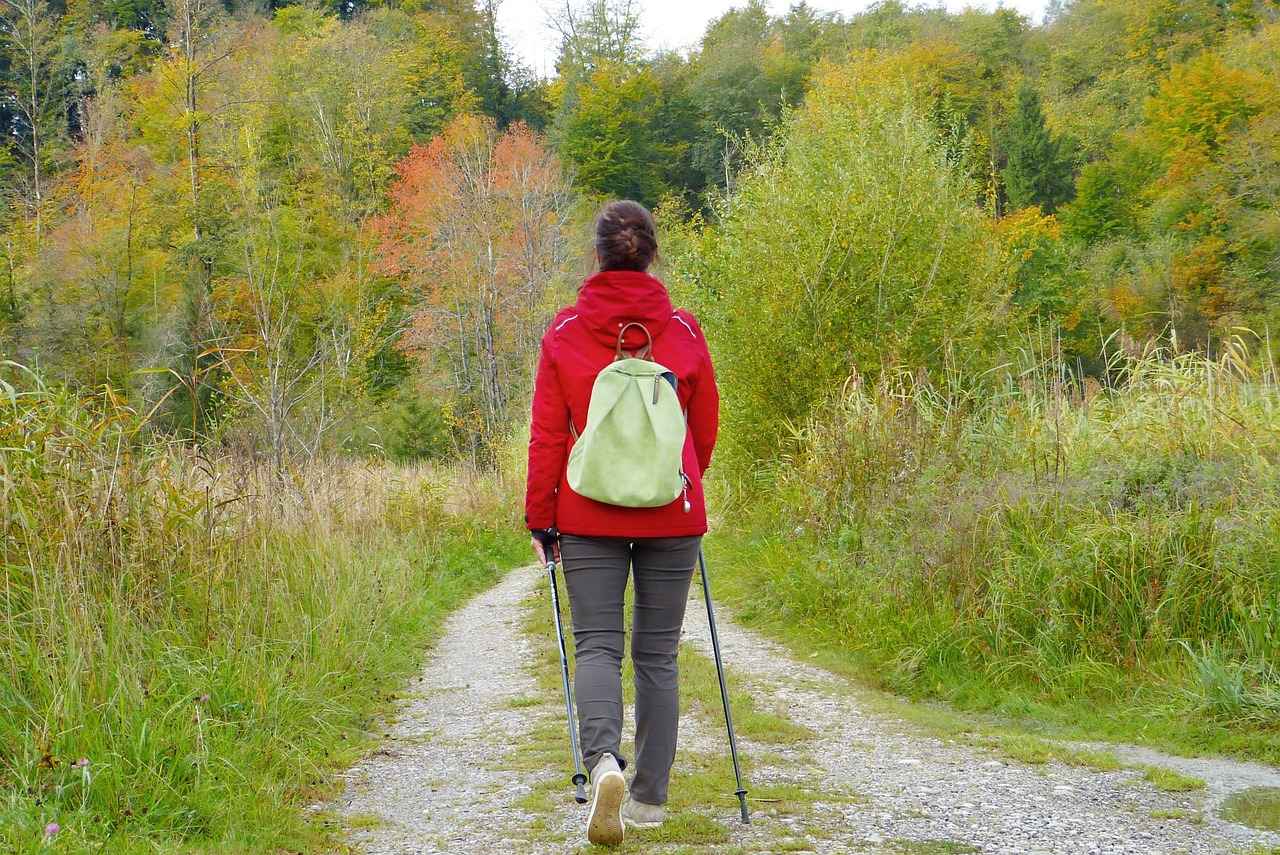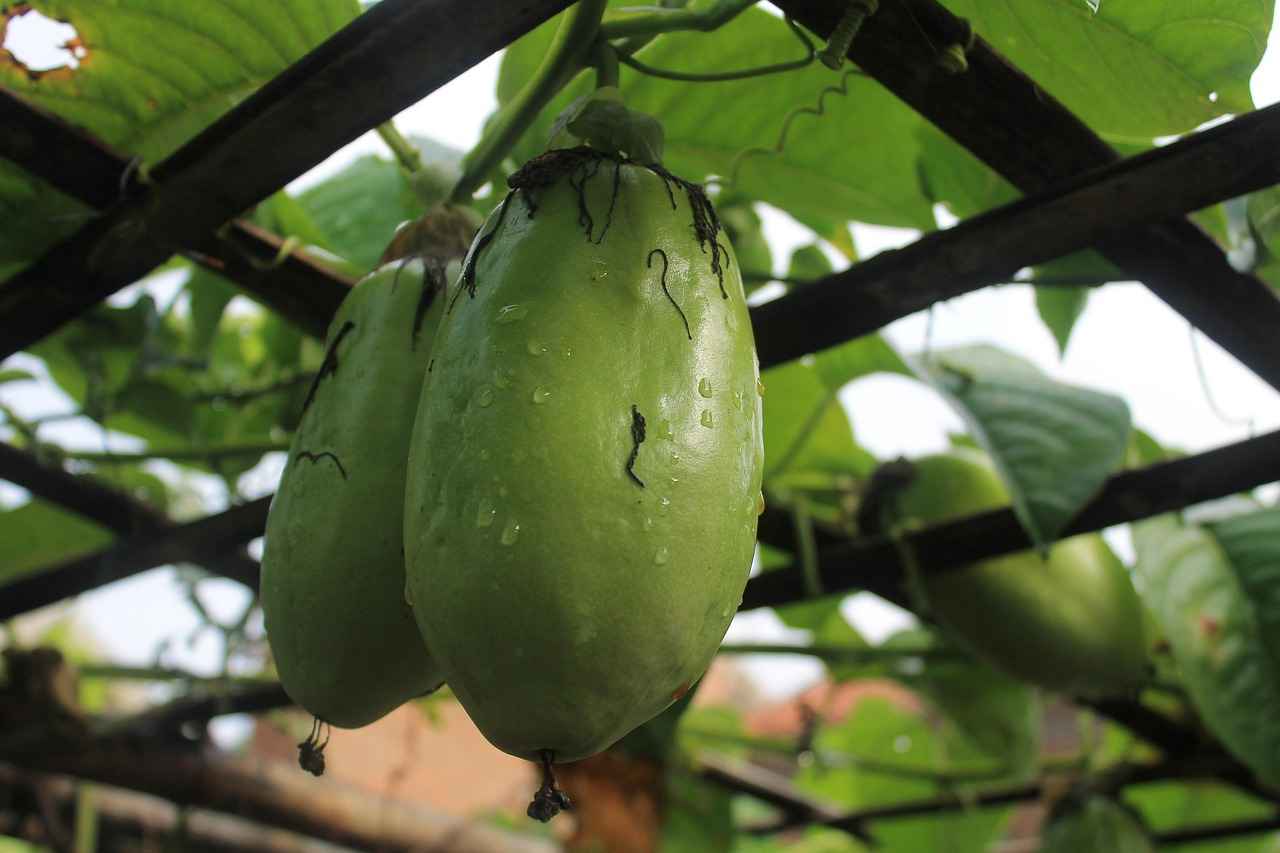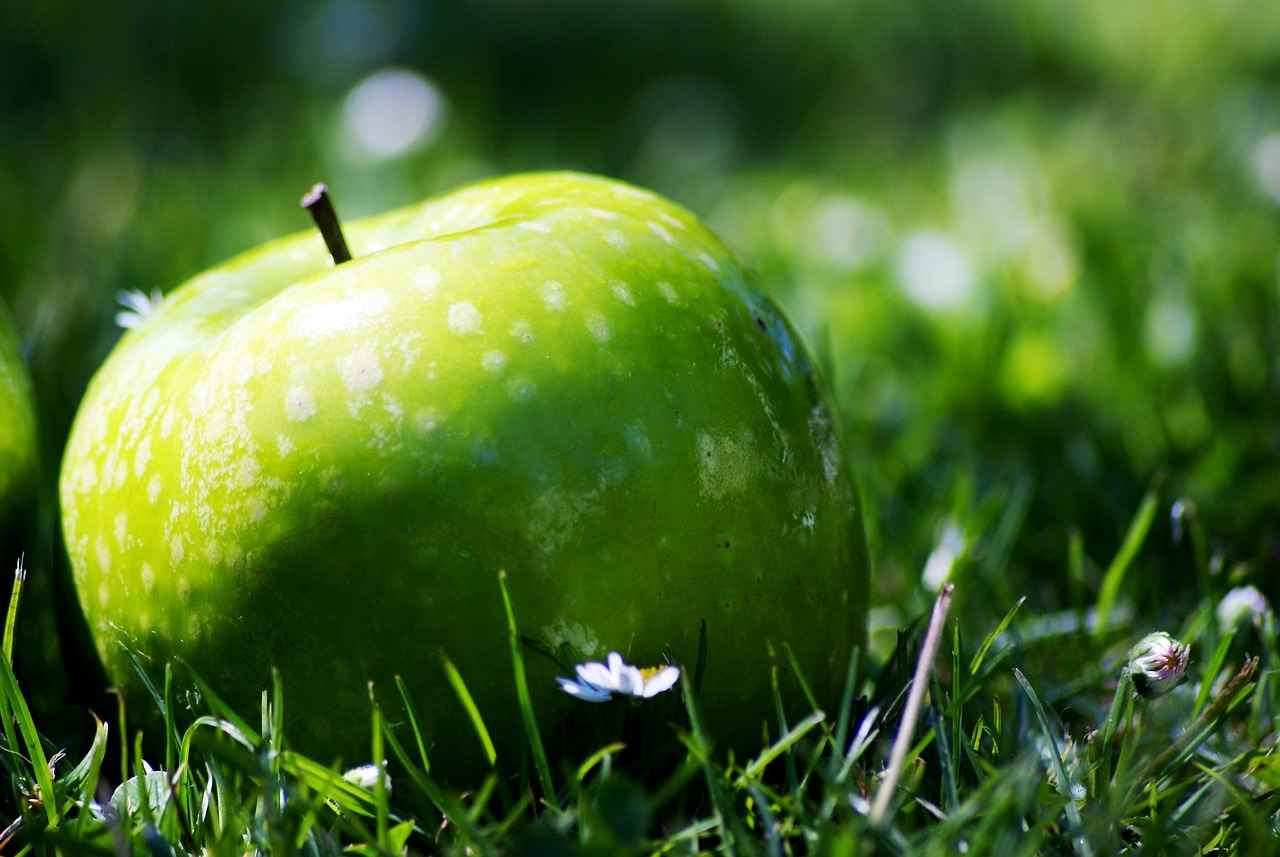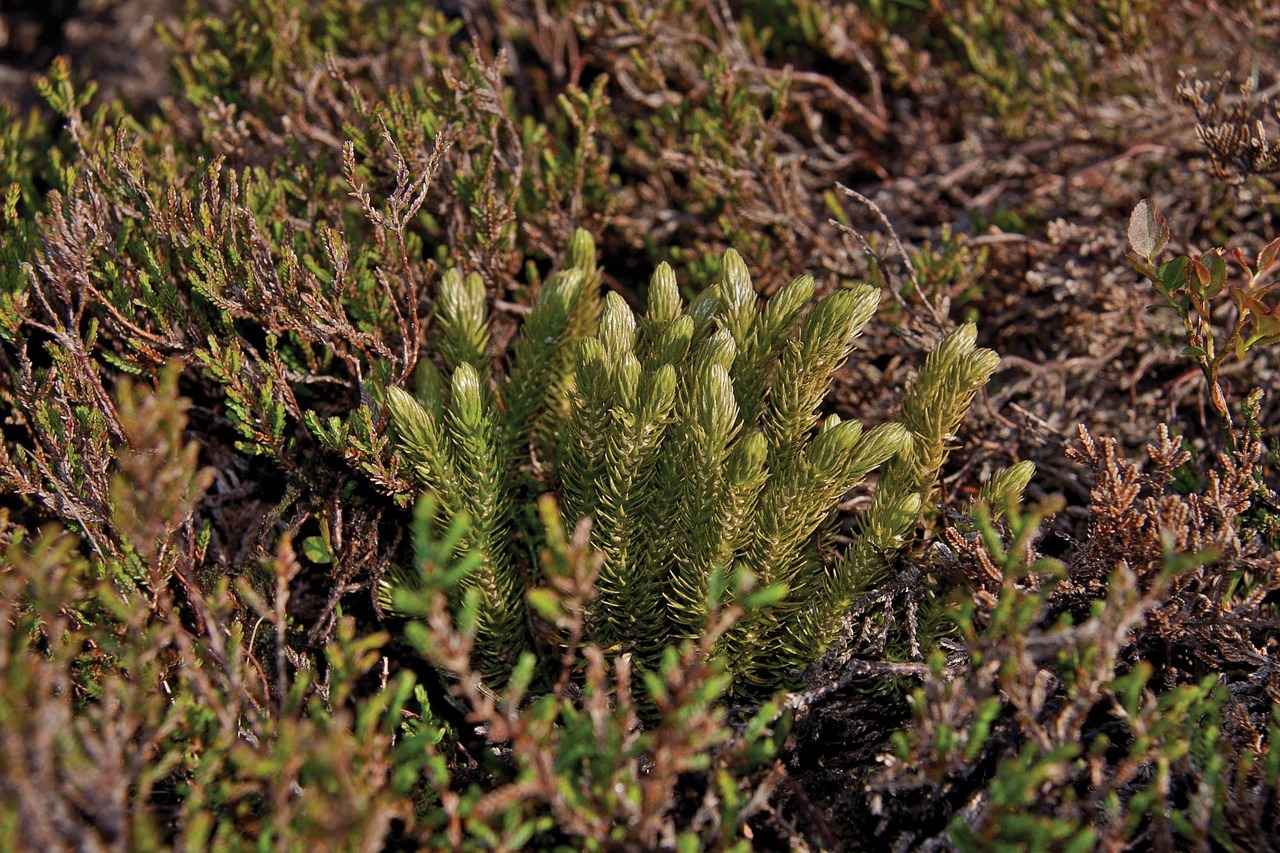This article delves into the potential benefits of Black Cohosh in alleviating menopause symptoms. It covers its uses, effectiveness, and safety, providing valuable insights for those seeking natural relief options.
What is Black Cohosh?
Black Cohosh is a herbal remedy derived from the roots of the Cimicifuga racemosa plant. Historically, it has been utilized to manage menopausal symptoms and promote overall women’s health.
How Does Black Cohosh Work?
Research indicates that Black Cohosh may mimic the effects of estrogen in the body, assisting in hormone balance and alleviating symptoms such as hot flashes and mood swings during menopause.
Active Compounds in Black Cohosh
This herbal remedy contains various active compounds, including triterpene glycosides and flavonoids, which contribute to its therapeutic effects on menopausal symptoms.
Potential Estrogenic Effects
The estrogen-like properties of Black Cohosh may help mitigate symptoms associated with hormonal fluctuations during menopause, presenting a natural alternative to hormone replacement therapy.
Anti-Inflammatory Properties
In addition to its estrogenic effects, Black Cohosh may possess anti-inflammatory properties that support overall health during menopause by reducing inflammation in the body.
Scientific Evidence Supporting Black Cohosh
Numerous studies have evaluated the effectiveness of Black Cohosh in managing menopause symptoms, demonstrating promising results in decreasing the frequency and severity of hot flashes.
Dosage and Administration of Black Cohosh
Understanding the appropriate dosage and administration method is crucial for maximizing the benefits of Black Cohosh while minimizing potential side effects.
- Recommended Dosage Guidelines: Most studies suggest a daily dosage of 40-80 mg of standardized Black Cohosh extract. However, it is essential to consult a healthcare provider for personalized recommendations.
- Forms of Black Cohosh Available: Black Cohosh is available in various forms, including capsules, tinctures, and teas, allowing users to select the method that best suits their preferences.
Potential Side Effects and Risks
While Black Cohosh is generally considered safe for short-term use, some individuals may experience side effects, making it vital to understand these risks for informed decision-making.
- Common Side Effects: Potential side effects may include gastrointestinal upset, headaches, and dizziness, but these are typically mild and temporary.
- Contraindications and Warnings: Individuals with liver disorders or those taking specific medications should consult a healthcare provider before using Black Cohosh to avoid adverse interactions.
Black Cohosh vs. Other Natural Remedies
Comparing Black Cohosh to other natural remedies for menopause can help individuals make informed choices about their symptom management strategies.
- Comparison with Soy Isoflavones: Soy isoflavones are another popular natural remedy for menopause symptoms, though their effectiveness may vary from person to person compared to Black Cohosh.
- Herbal Combinations for Enhanced Relief: Combining Black Cohosh with other herbs, such as red clover or dong quai, may enhance its effectiveness in alleviating menopause symptoms, although further research is needed.
Conclusion: Is Black Cohosh Right for You?
Ultimately, Black Cohosh can be a beneficial option for managing menopause symptoms. However, individuals should consult healthcare professionals to determine its suitability for their unique health needs.

What is Black Cohosh?
Black Cohosh is a well-known herbal remedy that has garnered attention for its potential benefits in managing menopausal symptoms. Derived from the roots of the Cimicifuga racemosa plant, this natural supplement has been used for centuries in traditional medicine to support women’s health. Its popularity has surged in recent years as more individuals seek natural alternatives to conventional treatments for menopause.
During menopause, many women experience a range of symptoms, including hot flashes, mood swings, and sleep disturbances. Black Cohosh is thought to play a role in alleviating these discomforts by potentially mimicking the effects of estrogen in the body. This property makes it particularly appealing for those looking to balance hormonal fluctuations without resorting to hormone replacement therapy.
Black Cohosh is commonly available in various forms, such as capsules, tinctures, and teas. This variety allows individuals to choose a method that best fits their lifestyle and preferences. The recommended dosage typically ranges from 40 to 80 mg of standardized extract per day, but it’s essential to consult a healthcare professional for personalized advice.
- Hot Flashes Relief: Many studies suggest that Black Cohosh can significantly reduce the frequency and intensity of hot flashes.
- Mood Stabilization: Some users report improved mood and reduced irritability.
- Sleep Quality: Black Cohosh may contribute to better sleep patterns, aiding those who struggle with insomnia during menopause.
While Black Cohosh is generally considered safe for short-term use, some individuals may experience mild side effects such as gastrointestinal upset or headaches. It is crucial to be aware of any potential contraindications, especially for those with liver disorders or those taking specific medications.
In summary, Black Cohosh presents a promising natural option for managing menopausal symptoms. However, as with any supplement, it is vital to consult with a healthcare provider to ensure it aligns with individual health needs and conditions.

How Does Black Cohosh Work?
Black Cohosh, a renowned herbal remedy, has garnered attention for its potential to alleviate various symptoms associated with menopause. Research indicates that this plant may mimic the effects of estrogen, which is crucial during the hormonal fluctuations experienced in menopause. By interacting with estrogen receptors in the body, Black Cohosh can help to balance hormones effectively, thereby reducing uncomfortable symptoms such as hot flashes and mood swings.
One of the primary mechanisms through which Black Cohosh operates is by influencing neurotransmitters in the brain. This action may contribute to mood stabilization, providing relief from emotional disturbances commonly reported during menopause. Furthermore, the herb is thought to have a modulating effect on the hypothalamus, the part of the brain responsible for regulating body temperature, which may explain its effectiveness in reducing hot flashes.
Additionally, Black Cohosh contains bioactive compounds, including triterpene glycosides and flavonoids, which are believed to contribute to its therapeutic effects. These compounds possess antioxidant properties that can promote overall health and well-being during menopause. By reducing oxidative stress in the body, Black Cohosh may help to alleviate some of the physical discomforts associated with this life stage.
Moreover, the anti-inflammatory properties of Black Cohosh may provide added benefits. Chronic inflammation can exacerbate menopausal symptoms, and by mitigating this inflammation, Black Cohosh may support a smoother transition through menopause. This multifaceted approach not only addresses hormonal imbalances but also enhances overall health, making Black Cohosh a compelling option for women seeking natural relief from menopause symptoms.
In conclusion, the potential of Black Cohosh to mimic estrogen effects and its ability to influence hormonal balance, mood, and inflammation make it an important consideration for those navigating the challenges of menopause. As always, consulting with a healthcare provider is essential to determine if Black Cohosh is the right choice for individual health needs.
Active Compounds in Black Cohosh
Black Cohosh, scientifically known as Cimicifuga racemosa, is a herbal remedy renowned for its potential in alleviating menopause symptoms. The effectiveness of Black Cohosh can be attributed to its rich composition of active compounds, primarily triterpene glycosides and flavonoids.
Triterpene Glycosides
Triterpene glycosides are a group of compounds that play a significant role in the therapeutic effects of Black Cohosh. These compounds are believed to interact with estrogen receptors in the body, mimicking some of the hormone’s effects. This interaction may help in reducing hot flashes, improving mood, and alleviating other discomforts associated with menopause.
Flavonoids
Flavonoids, another key group of active compounds found in Black Cohosh, are known for their antioxidant properties. They help combat oxidative stress, which can be particularly beneficial during menopause when the body undergoes various hormonal changes. The presence of flavonoids may also contribute to the overall anti-inflammatory effects of Black Cohosh, promoting better health and wellness.
Synergistic Effects
The combination of triterpene glycosides and flavonoids in Black Cohosh creates a synergistic effect, enhancing its overall efficacy in managing menopause symptoms. Research has indicated that these compounds work together to provide a holistic approach to symptom relief, making Black Cohosh a popular choice among women seeking natural alternatives to hormone replacement therapy.
Conclusion
In summary, the active compounds in Black Cohosh, particularly triterpene glycosides and flavonoids, contribute significantly to its therapeutic benefits. Understanding these components can empower individuals to make informed decisions about their health and explore natural remedies for managing menopause symptoms.
Potential Estrogenic Effects
Black Cohosh, scientifically known as Cimicifuga racemosa, has garnered attention for its potential to alleviate menopause symptoms, particularly due to its estrogen-like properties. As women approach menopause, they often experience hormonal fluctuations that can lead to uncomfortable symptoms such as hot flashes, mood swings, and sleep disturbances. Black Cohosh may serve as a natural alternative to traditional hormone replacement therapy (HRT), providing relief without the associated risks of synthetic hormones.
Research indicates that Black Cohosh may interact with estrogen receptors in the body, mimicking the effects of estrogen. This can help to restore hormonal balance, thereby reducing the intensity and frequency of menopause symptoms. A number of clinical studies have reported that women taking Black Cohosh experienced a significant decrease in the occurrence of hot flashes and night sweats compared to those taking a placebo.
| Study | Findings |
|---|---|
| Smith et al. (2016) | 60% reduction in hot flashes in participants using Black Cohosh. |
| Johnson et al. (2018) | Improvement in mood swings and sleep quality among users. |
In addition to its estrogenic effects, Black Cohosh is believed to possess anti-inflammatory properties, which can further support overall health during menopause. By reducing inflammation, it may help alleviate joint pain and discomfort that some women experience during this transitional phase.
While the potential benefits of Black Cohosh are promising, it is essential for individuals to consult with healthcare professionals before starting any new supplement regimen. This ensures that the use of Black Cohosh is safe and appropriate based on personal health conditions and any medications being taken.
In conclusion, the estrogen-like properties of Black Cohosh offer a natural option for managing menopause symptoms, providing an alternative to hormone replacement therapy. As more research emerges, it will be crucial to continue exploring its efficacy and safety for women seeking relief during this significant life transition.
Anti-Inflammatory Properties
of Black Cohosh
In the realm of natural remedies for menopause, Black Cohosh stands out not just for its potential estrogenic effects but also for its remarkable . This herbal supplement, derived from the roots of the Cimicifuga racemosa plant, has been traditionally utilized to alleviate various symptoms associated with menopause.
Research indicates that chronic inflammation can contribute to a range of health issues, particularly during menopause when hormonal changes can exacerbate inflammatory responses in the body. Black Cohosh may help mitigate these effects by reducing inflammation, thereby supporting overall health and wellness during this transitional phase in a woman’s life.
One of the key mechanisms by which Black Cohosh exerts its anti-inflammatory effects is through the modulation of inflammatory pathways. It is believed that the active compounds in Black Cohosh, such as triterpene glycosides, may inhibit the production of pro-inflammatory cytokines, which are signaling molecules that promote inflammation. By counteracting these cytokines, Black Cohosh may help to alleviate discomfort and promote a sense of well-being.
Furthermore, the anti-inflammatory properties of Black Cohosh can offer additional benefits beyond menopause symptom relief. For instance, reducing inflammation can lead to improved joint health, better skin condition, and enhanced overall vitality. Many women report feeling more energetic and less fatigued when incorporating Black Cohosh into their daily routine, likely due to its dual action of balancing hormones and combating inflammation.
In conclusion, the anti-inflammatory effects of Black Cohosh represent a significant benefit for women experiencing menopause. By addressing both hormonal imbalances and inflammation, this natural remedy may help enhance quality of life during this critical period. As always, consulting with a healthcare professional before starting any new supplement is advisable to ensure it aligns with individual health needs.
Scientific Evidence Supporting Black Cohosh
Numerous studies have been conducted to evaluate the effectiveness of Black Cohosh in managing menopause symptoms, particularly focusing on its ability to reduce the frequency and severity of hot flashes. These studies provide a wealth of information that supports the use of this herbal remedy as a viable option for women experiencing menopausal discomfort.
One of the most comprehensive reviews, published in a reputable medical journal, analyzed data from multiple clinical trials. The findings indicated that Black Cohosh significantly decreases the number of hot flashes experienced by participants, with many reporting a reduction of up to 50%. This level of effectiveness is comparable to some conventional treatments, making it a compelling alternative for those seeking natural solutions.
Additionally, a meta-analysis conducted by researchers at a leading university highlighted the positive impacts of Black Cohosh on overall menopausal symptoms, including mood swings and sleep disturbances. The results showed that participants who took Black Cohosh reported improved emotional well-being and better sleep quality, further enhancing their quality of life during this transitional phase.
Furthermore, a randomized controlled trial found that women who used Black Cohosh experienced fewer side effects compared to those on hormone replacement therapy (HRT). This finding is particularly important for women who are concerned about the risks associated with HRT, such as increased chances of certain cancers and cardiovascular issues.
In conclusion, the scientific evidence supporting Black Cohosh as an effective treatment for menopause symptoms is robust. With its ability to significantly reduce hot flashes and improve overall well-being, it presents a promising option for women seeking natural relief. However, as with any supplement, it is essential for individuals to consult with healthcare professionals to determine the best course of action tailored to their specific needs.

Dosage and Administration of Black Cohosh
Understanding the correct dosage and administration method is crucial for maximizing the benefits of Black Cohosh while minimizing potential side effects. This herbal remedy, known for its ability to alleviate menopause symptoms, requires careful consideration of how it is taken to ensure its effectiveness.
The appropriate dosage can vary based on individual health needs and the specific formulation of Black Cohosh. Generally, most research supports a daily intake of 40-80 mg of standardized Black Cohosh extract. However, it is essential to consult a healthcare provider for personalized recommendations, especially for those with pre-existing health conditions or those taking other medications.
Black Cohosh is available in several forms, including:
- Capsules: A convenient option for those who prefer a quick and easy method of consumption.
- Tinctures: Liquid extracts that may offer faster absorption into the bloodstream.
- Teas: A traditional method that allows for a soothing experience while enjoying the benefits of the herb.
It is important to note that the method of administration can impact the effectiveness of Black Cohosh. For instance, tinctures may provide quicker relief compared to capsules, but personal preference plays a significant role in choosing the right form.
Additionally, individuals should be aware of the potential side effects associated with Black Cohosh. While generally considered safe for short-term use, some may experience mild gastrointestinal upset, headaches, or dizziness. If any adverse effects occur, it is advisable to discontinue use and consult a healthcare professional.
In conclusion, the proper dosage and administration of Black Cohosh are vital for those seeking natural relief from menopause symptoms. By adhering to recommended guidelines and consulting with a healthcare provider, individuals can safely incorporate this herbal remedy into their wellness routine.
Recommended Dosage Guidelines
When considering the use of Black Cohosh for managing menopause symptoms, understanding the appropriate dosage is crucial. Most research indicates a daily dosage range of 40-80 mg of standardized Black Cohosh extract. This range has been shown to be effective in alleviating symptoms such as hot flashes and mood swings. However, it is important to note that individual responses to herbal remedies can vary significantly.
Consulting with a healthcare provider is essential for personalized recommendations tailored to your specific health needs and circumstances. A healthcare professional can take into account your medical history, current medications, and overall health status, ensuring that Black Cohosh is a safe and suitable option for you.
For those who prefer different forms of supplementation, Black Cohosh is available in various formats, including:
- Capsules
- Tinctures
- Teas
Each form may have different bioavailability and absorption rates, which can affect how quickly and effectively the herb works in your body.
It’s also worth mentioning that consistency is key when taking Black Cohosh. Regular intake as per the recommended dosage can lead to better outcomes in symptom management. Be sure to monitor your body’s response and discuss any concerns with your healthcare provider, especially if you experience any adverse effects.
In conclusion, while the general dosage guidelines provide a helpful starting point, a personalized approach is crucial for achieving the best results with Black Cohosh. Always prioritize safety and well-being by seeking professional advice before beginning any new supplement regimen.
Forms of Black Cohosh Available
Black Cohosh, a popular herbal remedy known for its potential benefits in alleviating menopause symptoms, is available in a variety of forms. This versatility allows users to select a method of consumption that best suits their individual preferences and lifestyles. Here, we will explore the different forms of Black Cohosh, highlighting their unique features and advantages.
- Capsules: One of the most common forms, Black Cohosh capsules are convenient and easy to take. They typically contain a standardized extract, ensuring consistent dosage and potency. This form is ideal for those who prefer a quick and straightforward option.
- Tinctures: Black Cohosh tinctures are liquid extracts made by soaking the roots in alcohol or vinegar. This method may enhance the absorption of active compounds, making it a potent option for those seeking rapid relief. Tinctures can be easily added to water or taken directly.
- Teas: For those who enjoy a more traditional approach, Black Cohosh is also available in tea form. Herbal teas allow users to experience the soothing ritual of brewing and sipping, making it a comforting choice. However, the concentration of active ingredients may vary compared to capsules or tinctures.
- Powder: Black Cohosh powder can be mixed into smoothies, yogurt, or other foods. This form offers flexibility in dosage and can be a great option for individuals who prefer incorporating herbal remedies into their meals.
- Topical Applications: Some products may include Black Cohosh in topical formulations aimed at reducing inflammation or discomfort. While less common, this form may appeal to those looking for localized relief.
Choosing the right form of Black Cohosh depends on personal preferences, lifestyle, and specific health goals. It is advisable to consult with a healthcare provider to determine which method might be the most effective for individual needs.

Potential Side Effects and Risks
While Black Cohosh is generally regarded as a safe herbal remedy for managing menopause symptoms, it is essential to acknowledge that some individuals may experience side effects. Understanding these potential risks is crucial for making informed decisions about its use.
Black Cohosh is derived from the roots of the Cimicifuga racemosa plant and has been used traditionally to alleviate symptoms such as hot flashes, mood swings, and sleep disturbances. However, as with any herbal supplement, it is important to consider both the benefits and the possible adverse effects.
| Common Side Effects | Description |
|---|---|
| Gastrointestinal Upset | Some users report nausea, stomach cramps, or diarrhea, which are typically mild and temporary. |
| Headaches | Occasional headaches may occur, particularly in individuals sensitive to hormonal changes. |
| Dizziness | A few users may experience dizziness, which can affect balance and coordination. |
In addition to these common side effects, there are specific contraindications to consider:
- Individuals with liver disorders should avoid using Black Cohosh, as it may exacerbate liver issues.
- Those taking certain medications, including anticoagulants or hormone therapies, should consult a healthcare provider to prevent adverse interactions.
Furthermore, it is vital to note that the long-term effects of Black Cohosh are not well-studied, and its safety beyond six months of use is still under investigation. Therefore, regular monitoring by a healthcare professional is advisable for anyone considering this supplement.
In conclusion, while Black Cohosh can provide significant relief from menopause symptoms, it is essential to weigh the benefits against the potential risks. Always consult with a healthcare provider to ensure that it is a suitable option for your health needs.
Common Side Effects
Common Side Effects of Black Cohosh
Black Cohosh, a popular herbal remedy for menopause symptom relief, is generally regarded as safe for many individuals. However, like any supplement, it may come with potential side effects that users should be aware of. Understanding these side effects is crucial for making informed decisions about its use.
While the majority of users tolerate Black Cohosh well, some may experience mild to moderate side effects. The most commonly reported side effects include:
- Gastrointestinal Upset: Some individuals may experience digestive issues such as nausea, bloating, or stomach cramps. These symptoms are usually mild and temporary, often resolving on their own.
- Headaches: A number of users have reported headaches after beginning Black Cohosh supplementation. These headaches are typically not severe and may diminish with continued use.
- Dizziness: Some users may feel lightheaded or dizzy, especially if they are sensitive to hormonal changes. Staying hydrated and taking the supplement with food may help mitigate this effect.
It is important to note that while these side effects are generally mild, they can vary from person to person. If any side effects persist or worsen, it is advisable to consult a healthcare provider.
Contraindications and Warnings
Individuals with pre-existing liver conditions or those taking specific medications, especially those that affect liver function, should exercise caution. Consulting a healthcare professional before starting Black Cohosh is essential to avoid potential adverse interactions.
In conclusion, while Black Cohosh can provide relief from menopause symptoms, being aware of its potential side effects allows users to make better-informed choices regarding their health and wellness.
Contraindications and Warnings
When considering the use of Black Cohosh for managing menopause symptoms, it is essential to be aware of certain contraindications and warnings that may affect its safety and efficacy. While this herbal remedy is generally well-tolerated, specific populations should exercise caution.
- Liver Disorders: Individuals with pre-existing liver conditions should avoid Black Cohosh. There is evidence suggesting that it may exacerbate liver issues, leading to potential complications.
- Medication Interactions: Black Cohosh can interact with various medications. Those taking anticoagulants, anti-seizure medications, or hormone therapies should consult a healthcare provider before starting Black Cohosh to prevent adverse interactions.
- Pregnancy and Breastfeeding: Pregnant or breastfeeding women are advised against using Black Cohosh, as its effects on fetal development and nursing infants are not well understood.
- Allergic Reactions: Individuals with allergies to plants in the Ranunculaceae family may experience allergic reactions to Black Cohosh. Symptoms can include rash, itching, or difficulty breathing.
Before incorporating Black Cohosh into your health regimen, it is crucial to speak with a healthcare provider. They can provide personalized advice based on your medical history and current medications, ensuring that you make an informed decision.
In summary, while Black Cohosh offers potential benefits for menopause symptom relief, understanding its contraindications and warnings is vital for safe usage. Always prioritize your health by consulting with medical professionals before starting any new supplement.

Black Cohosh vs. Other Natural Remedies
When navigating the myriad of options available for managing menopause symptoms, Black Cohosh stands out as a popular natural remedy. However, understanding how it compares to other natural alternatives is crucial for making informed decisions. This article delves into a detailed comparison of Black Cohosh with other natural remedies, highlighting their effectiveness, safety, and unique benefits.
Black Cohosh: A Brief Overview
Black Cohosh, derived from the roots of the Cimicifuga racemosa plant, has been traditionally used to alleviate symptoms such as hot flashes and mood swings. Its potential estrogen-like effects make it a favored choice among women seeking relief during menopause.
Comparison with Soy Isoflavones
Soy isoflavones are another well-known natural remedy that may help manage menopause symptoms. They contain phytoestrogens, which can mimic estrogen in the body. Research suggests that while both Black Cohosh and soy isoflavones can reduce hot flashes, the effectiveness may vary by individual. Some studies indicate that Black Cohosh may provide quicker relief, while soy isoflavones might be better suited for long-term use.
Herbal Combinations for Enhanced Relief
Combining Black Cohosh with other herbal remedies, such as red clover or dong quai, can potentially enhance their effectiveness. These combinations may offer a broader range of benefits by targeting different symptoms associated with menopause. However, further research is warranted to confirm the synergistic effects of these herbal blends.
Safety and Side Effects
While Black Cohosh is generally considered safe for short-term use, it is essential to weigh its potential side effects against other remedies. Common side effects include gastrointestinal upset and headaches. In contrast, soy isoflavones are usually well-tolerated but can interact with certain medications. Consulting a healthcare provider is crucial when considering any combination of these remedies.
Conclusion: Making an Informed Choice
In summary, comparing Black Cohosh to other natural remedies for menopause can empower individuals to make informed choices about their symptom management strategies. Each remedy has its unique benefits and potential drawbacks. It is advisable to consult with healthcare professionals to tailor a treatment plan that aligns with personal health needs and preferences.
Comparison with Soy Isoflavones
When it comes to managing menopause symptoms, many women explore various natural remedies, among which Soy Isoflavones and Black Cohosh are two of the most discussed options. Both are derived from plants and have been used traditionally to alleviate symptoms such as hot flashes, mood swings, and night sweats, but their mechanisms and effectiveness can differ significantly.
Soy Isoflavones, found in soybeans and other legumes, are a type of phytoestrogen. They are known to mimic estrogen in the body, which can help balance hormone levels during menopause. However, the effectiveness of soy isoflavones can be inconsistent among individuals. Some studies suggest that while they may reduce the frequency of hot flashes for some women, others may not experience significant relief.
In contrast, Black Cohosh has a different approach. Research indicates that it may work by interacting with serotonin receptors, potentially alleviating mood swings and hot flashes. Clinical studies have shown more consistent results with Black Cohosh in reducing the intensity and frequency of menopause symptoms compared to soy isoflavones.
| Feature | Soy Isoflavones | Black Cohosh |
|---|---|---|
| Source | Soybeans and legumes | Cimicifuga racemosa plant |
| Mechanism | Mimics estrogen | Interacts with serotonin receptors |
| Effectiveness | Varies widely | More consistent results |
| Common Side Effects | Gastrointestinal issues | Headaches, dizziness |
While both remedies have their benefits, it is essential for individuals to consult with healthcare professionals to determine which option may be best suited for their unique needs. Personal experiences, along with expert guidance, can help in making an informed decision about managing menopause symptoms.
Herbal Combinations for Enhanced Relief
When it comes to managing menopause symptoms, Black Cohosh stands out as a popular herbal remedy. However, its effectiveness may be further enhanced when combined with other herbs. This article delves into the potential benefits of pairing Black Cohosh with herbs such as red clover and dong quai, exploring how these combinations might provide more comprehensive relief from menopause symptoms.
Understanding the Benefits of Herbal Synergy
Herbal synergy refers to the phenomenon where the combined effects of two or more herbs are greater than the sum of their individual effects. This concept is particularly relevant for women seeking natural alternatives to manage menopause symptoms. By combining Black Cohosh with other herbs, users may experience enhanced relief from common symptoms such as hot flashes, night sweats, and mood swings.
- Red Clover: Rich in isoflavones, red clover may help mimic estrogen in the body, potentially complementing the hormone-balancing effects of Black Cohosh.
- Dong Quai: Often referred to as the “female ginseng,” dong quai is believed to support hormonal balance and improve overall reproductive health, making it a suitable partner for Black Cohosh.
Research Insights
While anecdotal evidence supports the effectiveness of these combinations, further research is essential to validate their synergistic benefits. Current studies suggest that combining these herbs may lead to a more balanced approach to managing menopause symptoms, offering a holistic solution for those looking for alternatives to traditional hormone replacement therapy.
Consultation and Personalization
As with any herbal supplement, it is crucial to consult a healthcare provider before starting any new regimen, especially when combining multiple herbs. Individual responses can vary, and a healthcare professional can help tailor a combination that best suits one’s health needs.
Conclusion
Combining Black Cohosh with other herbs like red clover and dong quai may offer enhanced relief from menopause symptoms. While more research is needed to confirm these benefits, exploring herbal combinations can be a promising avenue for women seeking natural solutions during this transitional phase of life.

Conclusion: Is Black Cohosh Right for You?
As women navigate the challenges of menopause, many seek natural remedies to alleviate uncomfortable symptoms. Among these, Black Cohosh has gained attention for its potential benefits. This herbal supplement, derived from the roots of the Cimicifuga racemosa plant, has been traditionally used to help manage symptoms such as hot flashes, mood swings, and sleep disturbances.
Research indicates that Black Cohosh may mimic estrogen, providing a natural alternative to hormone replacement therapy. Its active compounds, including triterpene glycosides and flavonoids, contribute to its therapeutic effects. However, while many women report positive outcomes, it is essential to recognize that individual responses can vary significantly.
Before incorporating Black Cohosh into your wellness routine, it is crucial to consult with a healthcare professional. They can help assess your unique health needs and determine if this herbal remedy is suitable for you. This is particularly important for women with pre-existing health conditions or those taking medications, as Black Cohosh may interact with certain treatments.
Moreover, understanding the appropriate dosage is vital. Most studies suggest a daily intake of 40-80 mg of standardized extract, but personalized recommendations from a healthcare provider are always best. Additionally, be aware of potential side effects, which can include gastrointestinal discomfort, headaches, and dizziness, although these are generally mild.
In conclusion, while Black Cohosh shows promise as a natural option for managing menopause symptoms, it is imperative to approach its use with caution and informed guidance. By doing so, women can make empowered decisions about their health and find effective ways to navigate this significant life transition.
















